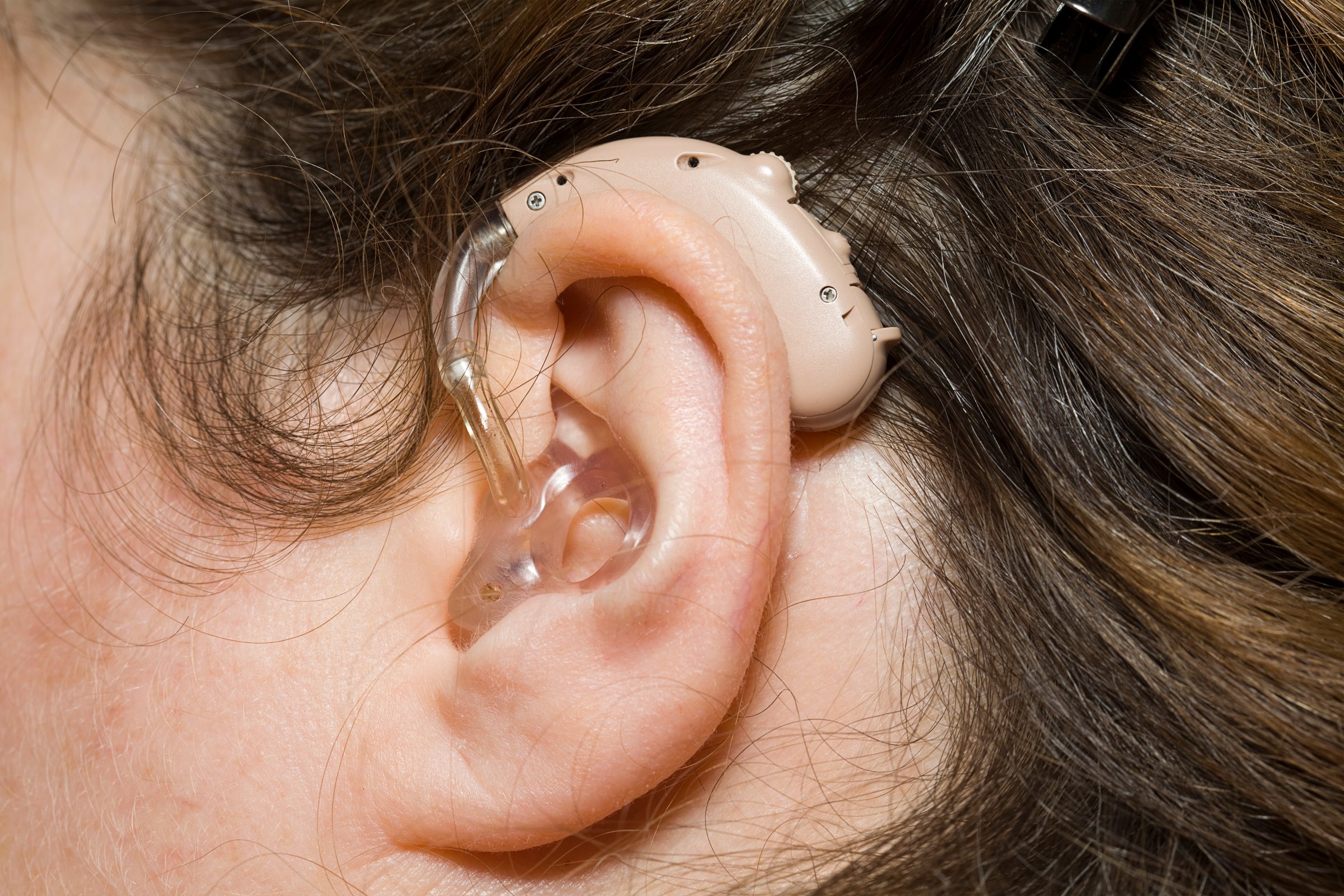
Hearing loss has huge consequences, but you might not know that based on how infrequently it’s treated. Roughly a third of adults who develop hearing loss report never seeing a physician about it—in part because of stigma and fear surrounding aging, disability, and hearing aids.
Dr. Janet Choi, an otolaryngologist at Keck Medicine of USC who herself wears a hearing aid, wanted to know how the devices might affect a person’s long-term health. Previous research has shown that adults with untreated hearing loss have shorter lifespans than those without any hearing loss—but what about those who use hearing aids, she wondered? In her new study, out Jan. 3 in The Lancet Healthy Longevity, Choi and her co-authors found that the regular use of hearing aids is associated with a 24% reduction in mortality among adults with hearing loss.
Choi analyzed federal data from more than 10,000 adults with hearing loss who were age 20 or older. All of them were surveyed by the U.S. Centers for Disease Control and Prevention between 1999 and 2012 about their hearing loss and hearing aid use. Mortality data on the group were also analyzed. Choi and her team were surprised by how strong the link was between hearing aid use and longevity, especially considering that her definition of “regular” hearing aid users included those who wore their device for as little as five hours per week. “The results were significant even after adjusting for age and severity of hearing loss, socioeconomic status, and other medical conditions,” she says.
Read More: Hearing Aids Are Now Available Over the Counter. What to Know Before Buying One
The finding was also surprising because researchers don’t yet know exactly how or why hearing loss might shorten lifespan. But several factors likely contribute. Those who are born with hearing loss or who lose hearing before learning language don’t experience the same negative health outcomes as those who lose hearing later in life, which suggests that health might suffer when the ability to communicate does, Choi says.
More From TIME
“Social isolation, depression, anxiety, and dementia have all been associated with hearing loss,” Choi says. While each of these factors has also been tied to mortality, the specific way that they add to the burden of hearing loss isn’t as well understood. A recent line of research has also tied hearing loss to structural changes, atrophy, and tissue loss in parts of the brain, particularly those related to auditory processing. In other words, people who had previously been able to hear well may suffer not only from the loss of their ability to communicate and engage with the world around them, but also from the loss of ambient noise more generally.
“The question we really don't know is when you actually use hearing aids, does that have a protective impact, or does it actually restore any of these brain structures?” Choi says. By better understanding the benefits of hearing aids, she hopes that more people will become open to wearing them. This includes both younger people like herself—despite lifelong left-ear hearing loss, Choi didn’t begin wearing an aid until her 30s—and those who are a part of older populations already at risk for social isolation, like the quarter of adults over 60 who experience what the World Health Organization classifies as “disabling” hearing loss.
“I really want to encourage any people experiencing hearing difficulties to seek care,” Choi says. “I've tried at least three different hearing aids. But when I found the one that really fit me and that I liked, I was surprised by the sound that I was missing.”
More Must-Reads from TIME
- Why Biden Dropped Out
- Ukraine’s Plan to Survive Trump
- The Rise of a New Kind of Parenting Guru
- The Chaos and Commotion of the RNC in Photos
- Why We All Have a Stake in Twisters’ Success
- 8 Eating Habits That Actually Improve Your Sleep
- Welcome to the Noah Lyles Olympics
- Get Our Paris Olympics Newsletter in Your Inbox
Contact us at letters@time.com